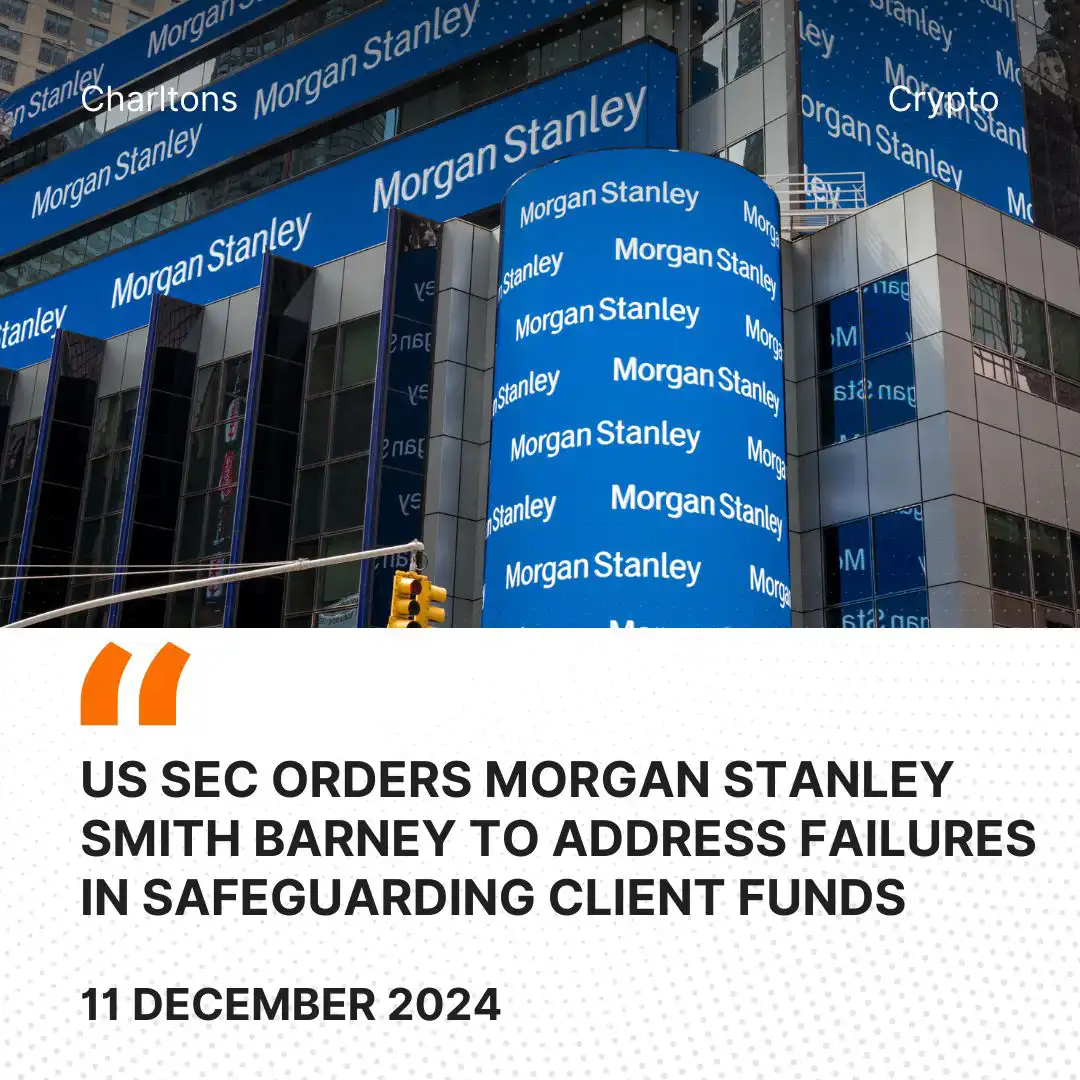
On 9 December 2024, the United States Securities and Exchange Commission (US SEC) issued an order instituting administrative and cease and desist proceedings, pursuant to section 15(b) of the United States Securities Exchange Act of 1934 and Sections 203(e) and 203(k) of the United States Investment Advisers Act of 1940, making findings, and imposing remedial sanctions and a cease-and-desist order against Morgan Stanley Smith Barney LLC (MSSB), alleging serious lapses in its policies and procedures designed to protect client funds. The US SEC’s order is issued against the MSSB’s failure to detect and prevent the misappropriation of millions of dollars from customer accounts by four financial advisers (FAs).
The US SEC found that MSSB failed to adopt and implement effective safeguards, allowing the fraudulent activities of its financial advisers, Michael Carter, Chingyuan “Gary” Chang, Douglas McKelvey, and Jesus Rodriguez, to go undetected. These individuals misused client funds through unauthorised Automated Clearing House (ACH) payments and wire transfers, collectively misappropriating millions of dollars over several years. Despite its obligations as a registered investment adviser and broker-dealer, MSSB’s internal controls failed to identify and address these red flags.
The fraud reportedly took place between 2015 and 2022, with each FA exploiting weaknesses in MSSB’s policies. Carter misappropriated over US$6 million through unauthorised wire transfers, while McKelvey diverted US$1.15 million from the accounts of elderly relatives. Chang and Rodriguez used unauthorised ACH payments to transfer funds for personal benefit. Carter misappropriated over US$6 million, McKelvey US$1.15 million, Chang US$58,000, and Rodriguez $3.6 million. MSSB’s inadequate fraud detection systems, implemented in 2015, failed to monitor suspicious patterns, such as transfers from multiple client accounts to a single external account.
MSSB further compounded the issue by not screening ACH payment instructions to detect cases where the beneficiary’s name matched that of the financial adviser responsible for the account. This negligence allowed fraud to persist for years, undetected. MSSB’s failures came to light only after client complaints and US SEC investigations prompted retroactive reviews of its transactions.
The US SEC has charged MSSB with violating several provisions of United States law, including Section 206(4) and Rule 206(4)-7 of the United States Advisers Act of 1940, which require investment advisers to establish written policies and procedures to safeguard client funds. MSSB is accused of failing to supervise its financial advisers as required under Section 15(b)(4)(E) of the United States Securities Exchange Act of 1934. The antifraud provisions under Section 10(b) and Rule 10b-5 of the United States Exchange Act were also breached due to MSSB’s oversight failures.
The US SEC has directed MSSB to cease and desist from further violations of the United States Advisers Act and the United States Exchange Act. The firm must pay a US$15 million civil penalty and engage an independent compliance consultant to review and enhance its fraud detection systems and supervisory policies. MSSB is required to implement remedial measures, including the regular monitoring of all ACH and wire transactions, and to provide enhanced training to staff to ensure compliance with federal regulations. Furthermore, MSSB must compensate all affected clients and establish a Fair Fund under Section 308(a) of the Sarbanes-Oxley Act to distribute these penalties equitably among victims.
(Source: https://www.sec.gov/files/litigation/admin/2024/34-101842.pdf, https://www.sec.gov/newsroom/press-releases/2024-193)





